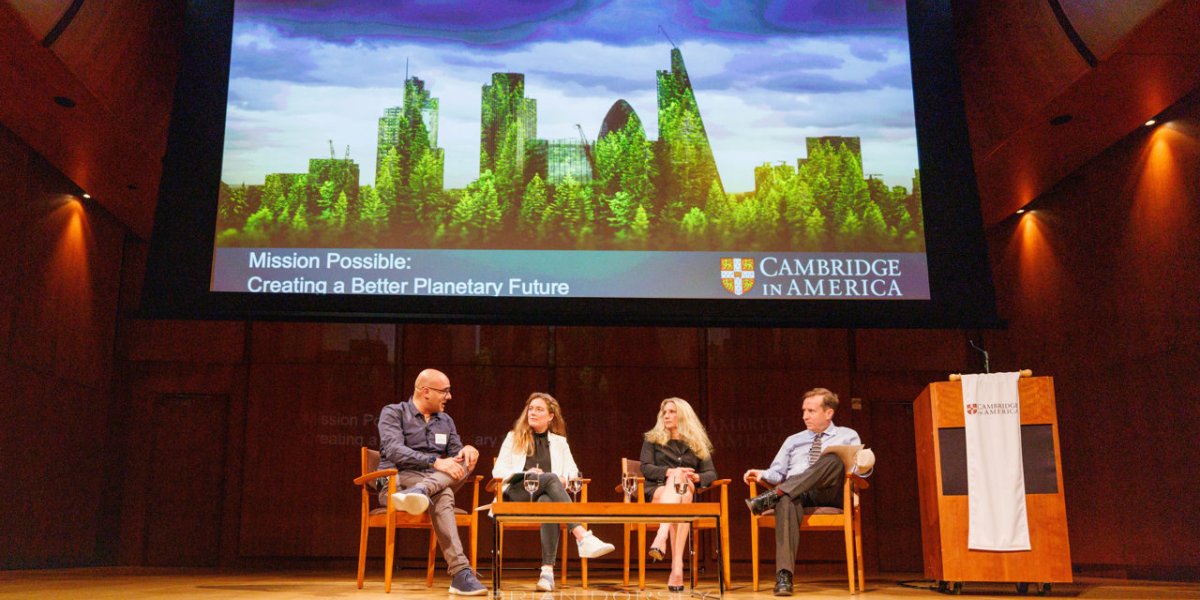On Wednesday, September 20, Cambridge in America added its voice to this year’s Climate Week events with Mission Possible: Creating a Better Planetary Future, a panel discussion at the Morgan Library and Museum in New York.
“The future is already here, and it feels catastrophic,” opened Matthew Connelly, panel moderator and Director of Cambridge’s Centre for the Study of Existential Risk. Panelists were unanimous in emphasizing that interdisciplinarity and a holistic approach are crucial to developing solutions to the climate catastrophe.
The discussion focused on the role academic institutions like the University of Cambridge play in educating students on the urgent risks the planet faces and empowering them to break systems and advocate for change. Research coming out of universities is also crucial to inform effective policy decisions.
Professor Emily Shuckburgh, Director of Cambridge Zero, Cambridge University’s flagship climate initiative, highlighted a few of Cambridge efforts that embrace an interdisciplinary approach, such as the Whittle Laboratory’s Impact Accelerator, working with engineers, researchers, computer scientists as well as policy makers, members of industry and the aerospace supply chain to accelerate the path to net zero aviation.
“Shell introduced the carbon footprint to put the onus on individuals,” Fiona Macklin, Senior Adviser to Groundswell, a joint initiative between Bezos Earth Fund, Global Optimism and the Systems Change Lab, reminded the audience. She critiqued any approach that puts too much emphasis on individual action. Structural and policy changes are needed to enable change, but there are crucial places where individuals should feel empowered to make decisions based on climate impact, including where we invest our money and who we vote for.
Panelist Anil Madhavapeddy, Professor of Planetary Computing, described his team’s ambitious work to collect data to understand the full scope of climate change and solutions. He closed out the discussion with a challenge he proposed to his students: to imagine what kind of world they want to build if they succeeded in their climate ambitions.
The panel took place in the context of the UN Secretary General’s Climate Ambition Summit at the United Nations on September 20. The summit was a critical political milestone that demonstrates the collective global will to accelerate the pace and scale to transition to a more equitable, climate-resilient, net-zero global economy.
More information about Cambridge Zero's mission can be found on their website and blog.
To learn more about this critical juncture in human history, we invite you to watch Facing The New Reality, the Climate Week NYC Opening Ceremony video with Professor Emily Shuckburgh. To learn more about The Centre for the Study of Existential Risk, visit their website.

